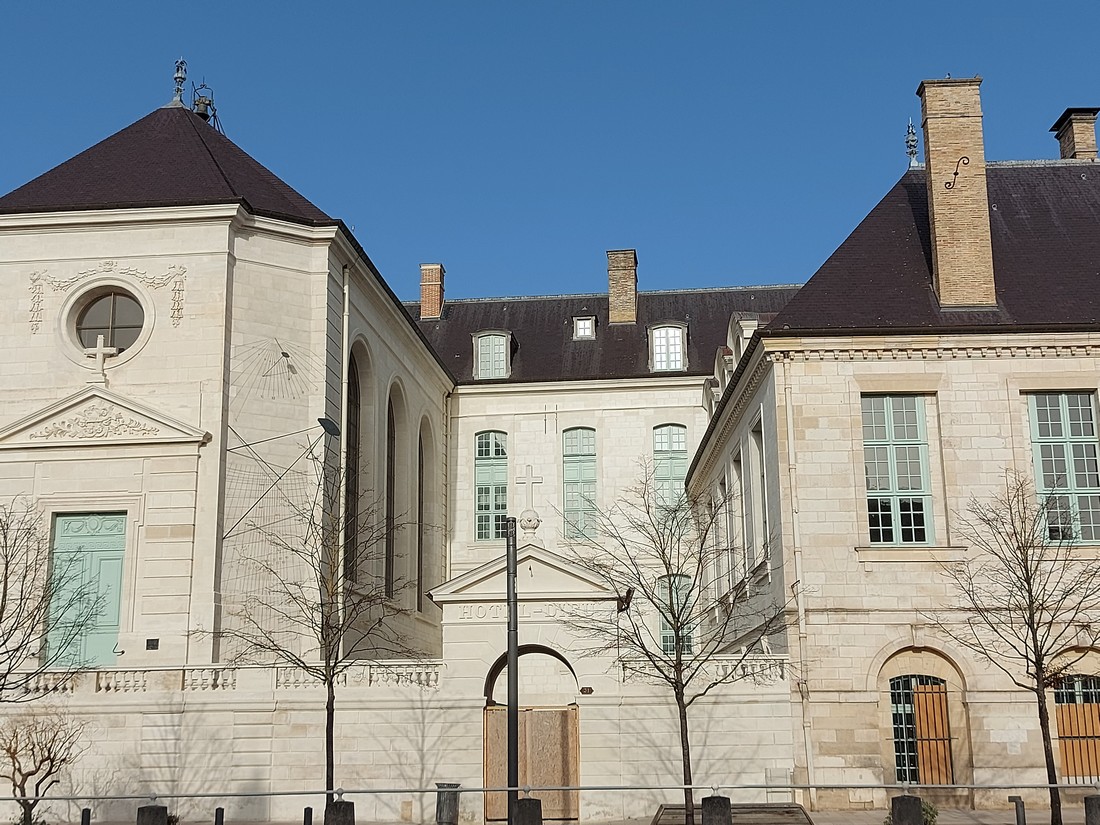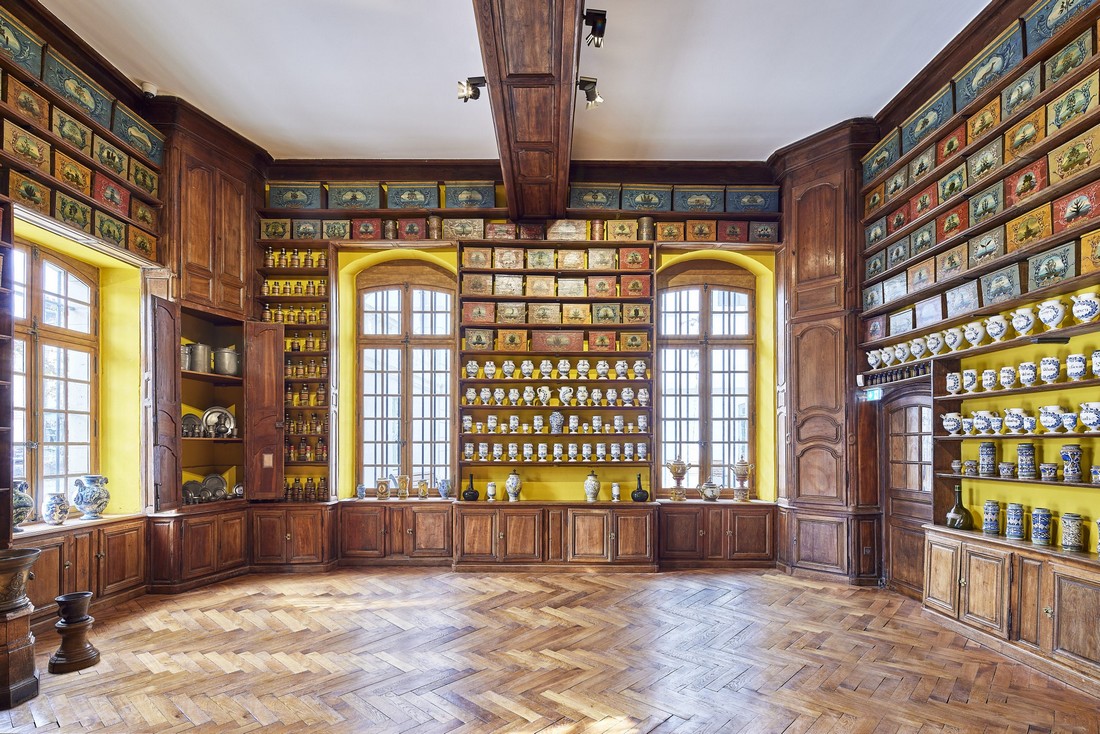About
For those in search of original collections, the Apothicairerie de l'Hôtel-Dieu-le-Comte is the place to be. It's one of France's finest apothecaries, in its original 18th-century setting.
Owned by the Troyes Hospitals, the Apothecary's collections were deposited with the city's museums in 1976, and have the status of "Musée de France".
The closure of the Apothicary's was an opportunity to renovate the museum's visitor itinerary, as part of a wider project to renovate all of Troyes' museums. Some of the collections have been restored.
Entrance to the Apothecary's is still through the historic door, directly from a large reception hall shared with the Cité du vitrail.
In the laboratory, a new "budding apothecary" area around the central pillar offers hands-on games based on the three kingdoms (animal, plant and mineral), a scent workshop, colouring and a digital application for touch-screen tablets. The latter includes an adult interface (focusing on certain objects in the collection, old recipes, quizzes, etc.) and a young people's interface, where apprentice apothecaries can receive their apothecary's diploma after triumphing over the tests put to them.
The collections in the 63m² Great Hall are displayed exactly as they were in the 18th century. The distance settings and panels have been revised.
The collection of 319 painted wooden boxes is unique in France and seems to have been made for the installation in the pharmacy. Each of the rectangular boxes dates from the 18th century and features a cartouche containing the illustration and name of the product contained. Most of these illustrations come from the book L'Histoire générale des drogues, written in 1695 by Pierre Pomet, a grocer and druggist.
The Apothecary's also features earthenware: majolica, albarelli, Hispano-Moorish (16th century), Italo-Moorish (16th century), Italo-French (17th century) and French Renaissance (early 17th century) pillboxes, as well as a collection of almost 300 18th-century rustic earthenware pots (Nevers style), soberly decorated with garlands of foliage and blue flowers, including chevrettes, pot-canons, pillboxes and bottles. These two exceptional sets are complemented by a number of pharmacy items.
No furniture remains from the old laboratory. Remedies were still prepared here until 1961. The 59 m² laboratory now houses a new display on the work of the apothecary and a new "budding apothecary" mediation area. Its layout, around the central pillar, echoes the laboratory's old furnaces. It features hands-on games based on the three kingdoms, a scents workshop, colouring and a digital application for touch-screen tablets. It includes an adult interface (with a focus on certain objects in the collection, old recipes, a quiz, etc.) and a young people's interface in which apprentice apothecaries have to earn their diploma of apothecary.
Classification & labels
- Bad weather alternative
Opening
| Days | Hours |
|---|---|
| Tuesday | 10h00 to 17h00 |
| Wednesday | 10h00 to 17h00 |
| Thursday | 10h00 to 17h00 |
| Friday | 10h00 to 17h00 |
| Saturday | 10h00 to 17h00 |
| Sunday | 10h00 to 17h00 |
Exceptional(s) closure(s)
- 01/01/2026
- 01/05/2026
- 01/11/2026
- 11/11/2026
- 25/12/2026
Rate
| Rate | Min. | Max. |
|---|---|---|
| Full price | Min: 5€ | Max: 5€ |
Free admission for all, on the 1st Sunday of each month. Free admission for Troyens on the 1st Saturday of each month (on presentation of the Pass'Troyen).
Free admission (on presentation of proof): young people under 26, jobseekers, disabled people and accompanying persons, ICOM, journalists, tour guides.
Services
Services
- Educational visits
- Guided tours
Activities
- Handicrafts workshops
- Children's entertainment

